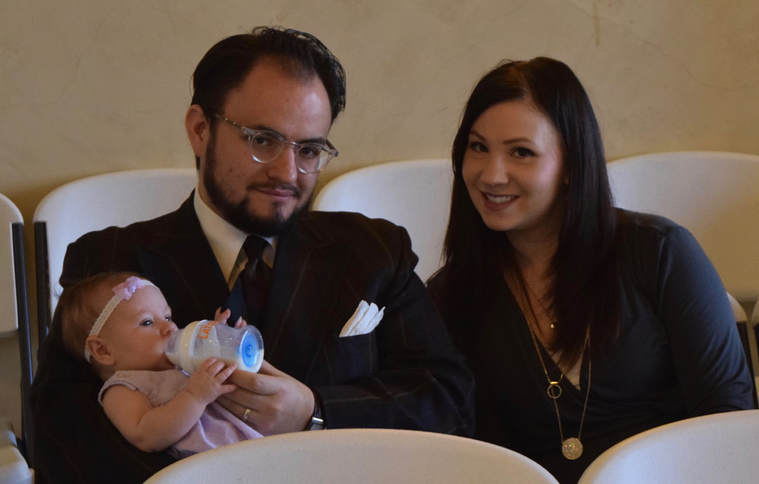|
Many years ago, when I was a brand new curate, I had a woman come into my office to talk to me about having her son baptized. She was not a member of the parish, and in fact I had never even laid eyes on her before she stepped into my office that day. So I asked her what I thought was a very practical question. “Why do you want to have your son baptized?” She looked at me like I had snakes coming out of my ears. As if to say, “Isn’t it obvious,” she responded, “Well, so he won’t go to Hell, of course!” Now it was my turn to be shocked. I said, “Ma’am, this isn’t some sort of magic wand or ‘get out of Hell free’ card. It is a sacrament!” I can’t remember what happened after that, but I do know that I never did that baptism.
According to the Anglican catechism, a sacrament is “an outward and visible sign of an inward and spiritual grace." It goes on to say that sacraments should be received, “by faith in Christ, with repentance and thanksgiving.” So for a sacrament to be valid, faith must be present. This is why I can’t stand on the side of the road with a garden hose and baptize people as they walk by, because without faith I am just getting them wet (and probably myself in trouble). But if that is the case, how can we allow babies and young children to receive the sacraments of Baptism and Communion? Shouldn’t we wait until they are old enough to profess a personal faith in Christ? Shouldn’t these sacraments be invalidated by the absence of faith? Not at all.
0 Comments
|
The Rev. Eric ZolnerFather Eric is a 3rd generation Anglican and the Rector of All Saints Anglican Church in Springfield, MO. Archives
February 2021
Categories |
|
All Saints Anglican Church
2751 E Galloway Street Springfield, MO 65804 Church Phone Number: 417-888-3001 GET DIRECTIONS |
Sunday Morning Worship
8:15 a.m. Holy Communion 10:45 a.m. Holy Communion Click here for this week's worship schedule Morning Prayer 8:15 a.m. Monday through Friday |


 RSS Feed
RSS Feed